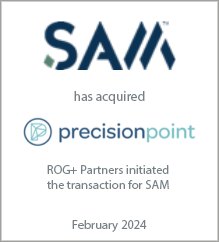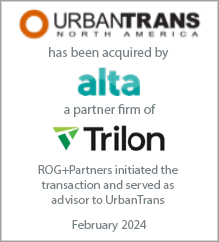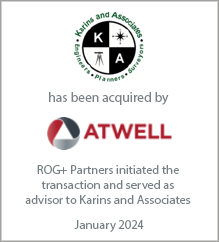With nearly fifteen years of corporate financial advisory experience, Jonathan Voelkel has worked with hundreds of engineering, architecture, and environmental consulting firms across the U.S. and abroad, in all facets of mergers & acquisitions, valuation, ownership transition planning, equity incentive compensation, and ESOP advisory. Jonathan received his Bachelor of Arts (BA) degree in Economics from Johns Hopkins University.
Millennials… Please Don’t Fail To Launch.
Millennials… Please Don’t Fail To Launch.
February 8, 2012
The perception by older generations of company owners is that members of Generation Y (aka “millennials”) are inert bodies when it comes to rising to the challenge of ownership. Maybe they were coddled too much by their baby boomer parents. Or perhaps the millennials as a generation are a result of a modern culture where no competition has a loser and everyone gets a medal for just showing up.
Whatever the case, because the reality of this might not be too divergent from the perception, here is the corollary: getting ownership into the hands of younger employees is paramount to ensuring the longevity of your firm!
Most owners are gradually coming to grips with the fact that millennials are the next generation, but I suspect that the greater issue at hand is that many millennials have yet to realize that the future is theirs for the taking. All too often preoccupied with promotions, raises, and more personal time, younger employees may not realize that the greatest measure of one’s worth to a firm is measured in ownership. So, for those who may be ready and willing to accept the beckoning of ownership, where to start?
Getting Going
Here are a few basic questions that millennials should be asking A/E firm owners to assist them on the path to ownership:
What is the ownership picture here, and what role can I play in it?
Chances are you won’t waste your time broaching this subject if you’re not serious about it, which is a good thing for both you and your company. Merely showing an interest in ownership might be the biggest catalyst in your becoming an owner, because frankly, management doesn’t always have the best read on what its employees want. This question also serves as an excellent prompt to getting a clearer understanding of what your employer’s short- and long-term goals are for you.
Some firms have a formal process in which ownership is tied to a certain title, meaning that there are generally very measurable goals set for each preceding position, while others will treat the issue of ownership on more of an ad hoc basis. Either way, and considering everything in between, the only way to proactively learn about ownership possibilities is to show interest.
What does ownership mean in my firm?
As broad a question as this may seem initially, it is actually easily reduced to a very specific concept – does ownership simply represent an additional financial benefit to an employee (with any and all corresponding responsibilities, of course), a symbol of gratitude (sometimes referred to as “sweat equity”), or is there also an inherent component of leadership with each share or unit owned?
Over the past winter holiday, I spoke with friends who, like me, are considered the earliest of the Generation Yers. While many work for firms where a meaningful ownership stake isn’t quite in the cards (i.e., publicly traded companies), a few are in positions not dissimilar to mine, and as to be expected, had varying descriptions of what ownership meant on a personal level. For one who works at a consultancy, it was a combination of the aforementioned financial benefit and leadership angle – for another who joined a budding Web 2.0 startup (yes, tech startups are back!), it was just the ability to have a voice as a firm leader… In any case, understanding the culture of ownership in one’s firm is a great place to start learning more about the opportunity.
How will I pay for ownership?
If you’re already at the stage of being considered in the next round of ownership offering, this is likely one of your primary concerns. The actual dollar cost of any investment is always part of the consideration put into estimating the true value of the investment, and although investments in privately-held firms often provide far greater returns than can be found in the external market, the additional risk assumed by such a purchase does not mean that the investment should be had for zero or next-to-nothing!
Not to fret, however, because rarely do sellers require significant outlays of cash or other forms of non-company financing, and many are actually willing to work through financing issues with buyers, generally through notes payable to the company or to the seller; such debt can often then be serviced by profit distributions. Although some buyers would prefer to have guaranteed bonuses or other forms of compensation to help cover the entirety of their loan payments, both parties should strive to strike a balance between the needs and desires of the sellers and the abilities of the buyers in regard to purchasing the shares.
The Future is Now?
Whether you’re a member of Generation X, Y, or even Z, now is the time to take a good look at your future, from both professional and financial perspectives. The opportunities for ownership are greater today than they ever have been before, but I can’t think of a truly good reason to put this kind of planning on the back burner. As for baby boomers or anyone else who’s got succession planning on the mind, find a way to engage the next generation of leaders in your firm, and avoid a “failed end.” Taking the appropriate steps to do so will, at the very least, help you avoid the unsettling position of not having much in the way of transition alternatives.
Latest Perspective
Perfecting the A/E Exit Strategy – Five Key Factors
An enormous A/E generation that kicked off their careers in the 1980s and subsequently started firms or became owners in the 1990s ...
© 2024
Rusk O'Brien Gido + Partners, LLC
Financial Experts for Architects, Engineers, and Environmental Consulting Firms









